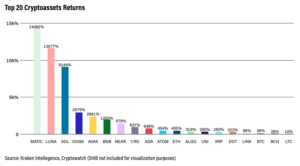Vitalik Buterin, co-founder of Ethereum, recently expressed harsh criticism towards Michael Saylor, founder and chairman of MicroStrategy.
The tensions between the two protagonists of the cryptocurrency world exploded after Saylor suggested that Bitcoin users should rely on large banks to safeguard their funds. This statement sparked a wave of discussions within the crypto community, leading Buterin to respond with decidedly heated tones.
The context of the diatribe between Vitalik Buterin and the CEO of MicroStrategy
The debate on Bitcoin custody is one of the hottest in the cryptocurrency sphere. On one side, there are those who advocate for self-custody, which is the practice of holding one’s own Bitcoin in private wallets, without intermediaries such as banks or financial institutions.
On the other hand, there is a growing push towards custody through centralized entities, such as banks or specialized platforms, which offer Bitcoin storage services on behalf of their clients.
Michael Saylor, known for being one of the biggest supporters of Bitcoin and for having led MicroStrategy in the acquisition of billions of dollars in Bitcoin, recently stated that users should rely on established financial institutions to securely store their Bitcoin.
According to Saylor, the complexity of self-custody would represent a risk for most users, especially those less experienced, and relying on banks could offer a safer solution.
In response to Michael Saylor’s comments, Vitalik Buterin did not delay in making his voice heard. On October 22, in a post on X (formerly Twitter), Jameson Lopp, head of security at the Casa platform, reiterated his support for self-custody. Lopp is one of the main supporters of self-custody in the crypto community, and his post caught Buterin’s attention.
Vitalik Buterin responded with a sharp statement, saying: “I will happily say that I think Saylor’s comments are crazy.”
With this statement, Buterin clearly expressed his disapproval of the idea of entrusting Bitcoin to large banks or centralized institutions. For Buterin, the heart of cryptocurrency philosophy is individual autonomy and the possibility for users to have full control over their own assets, without having to rely on third parties.
Why Buterin is against Saylor’s approach
Vitalik Buterin’s position does not surprise those who have been following him for a long time. As co-founder of Ethereum, Buterin has always supported the idea of decentralization and individual sovereignty within the crypto sector. In his opinion, entrusting Bitcoin to large banks would mean betraying the fundamental principles on which the entire cryptocurrency ecosystem is based.
Self-custody allows users to have direct control over their Bitcoin, eliminating the risk of failures of financial institutions or security breaches by third parties. If banks held control of Bitcoin, it would create risks similar to those that have affected the traditional financial system, such as insolvency and corruption.
The observations of Saylor and the responses of Buterin highlight one of the most complex issues for the future of cryptocurrencies: how to balance security and accessibility. On one hand, there is Saylor’s vision that sees bank custody as a protection for less experienced users.
On the other hand, there is Buterin’s vision, which supports the importance of individual autonomy and decentralization, believing that custody in the hands of centralized institutions is in contradiction with the mission of Bitcoin and cryptocurrencies.
The crypto community continues to debate on what the best approach for the future is. Vitalik Buterin’s position represents a more radical vision closer to the origins of the crypto movement, while Michael Saylor’s reflects a perspective more oriented towards security and integration with the traditional financial system.
In conclusion, the confrontation between Buterin and Saylor does not seem destined to be resolved soon, and it will be interesting to see how this debate will influence the future of the cryptocurrency sector and the choice of users regarding the custody of their digital assets.






















